15 real photos of the Shah of Iran and his harem, which included almost 100 women
The harem seems to the European to be a kind of abode of young and beautiful women from the Arabian fairy tales “1000 and one nights”. Meanwhile, curious photos of the harem of Nasser ad-Din Shah Qajar, who ruled Iran at the end of the 19th century, destroy the prevailing stereotypes. In our review you can see the beauties of the Iranian ruler's harem with your own eyes.
Nasser ad-Din Shah Qajar, the fourth Shah of Iran, gained power in 1848 and ruled for 47 years. His reign was the longest in Iran's 3,000-year history.
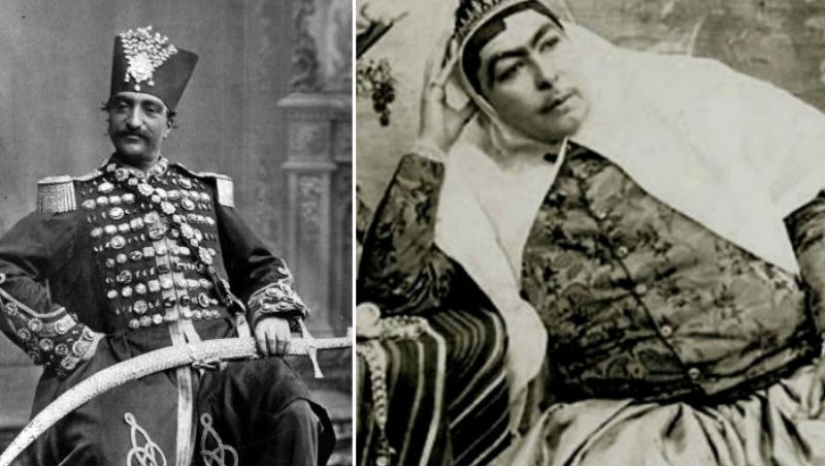
 Nasser ad-Din Shah Qajar is the happy owner of a harem.
Nasser ad-Din Shah Qajar is the happy owner of a harem.
Historians say that for his time, Nasser ad-Din Shah Qajar was well educated and was known as a sybarite, so much so that he subsequently displeased his associates.
 Ad-Din Shah Qajar and photographer Sevryugin before photography.
Ad-Din Shah Qajar and photographer Sevryugin before photography.
One of Shah Qajar's many passions was photography. He liked photography as a child, and when he came to power, he decided to create the first official photo studio in his palace. In the 1870s, Russian photographer Anton Sevryugin opened his studio in Tehran, who became the court photographer of the Iranian ruler. Sevryugin created a photographic chronicle of Iran and was awarded an honorary title for his services.
 The main entrance to the Gulistan Palace.
The main entrance to the Gulistan Palace.
A Russian photographer could photograph the Shah himself, his male relatives, courtiers and servants. And Qajar, an ardent admirer of photography, reserved the right to photograph his harem, in which, according to historians, he had about 100 concubines.
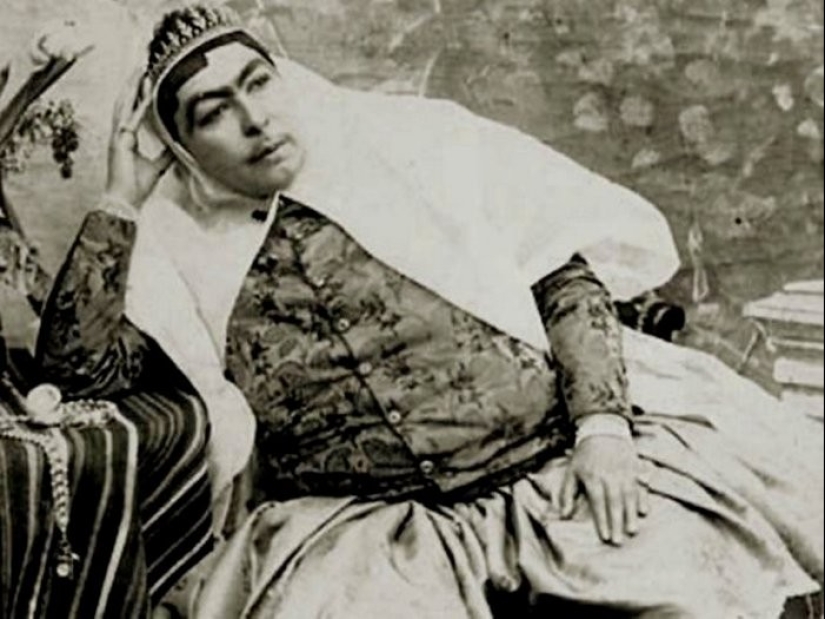 Completeness is the main criterion of beauty.
Completeness is the main criterion of beauty.
It is known that Nasser ed-Din Shah printed the photographs himself in the palace laboratory and kept them in satin albums in his Golestan Palace, where the museum is currently located.
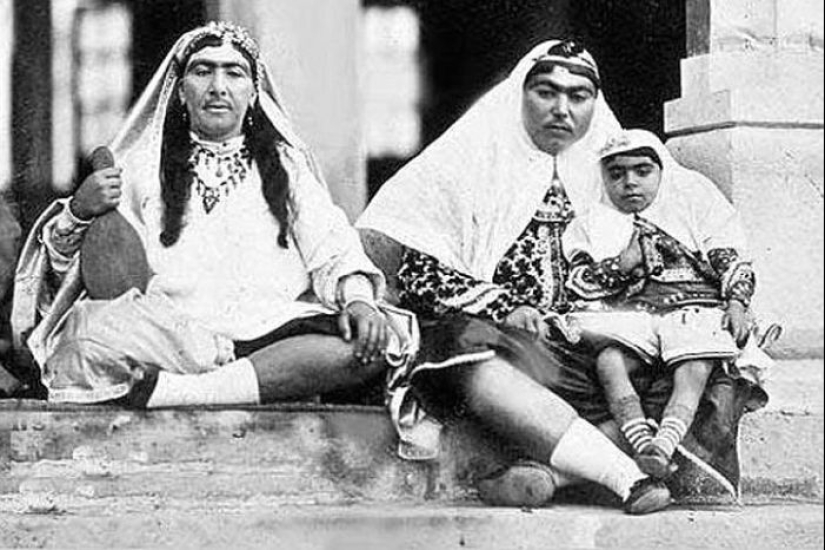 The incomparable Anis al-Doleh - the beloved wife of the Shah (right).
The incomparable Anis al-Doleh - the beloved wife of the Shah (right).
The extraordinary nature of the photographs of his concubines lies in the fact that according to Shiite laws at that time it was prohibited to photograph people’s faces, and especially the faces of women. And only the most powerful man in the country could afford to break the law.
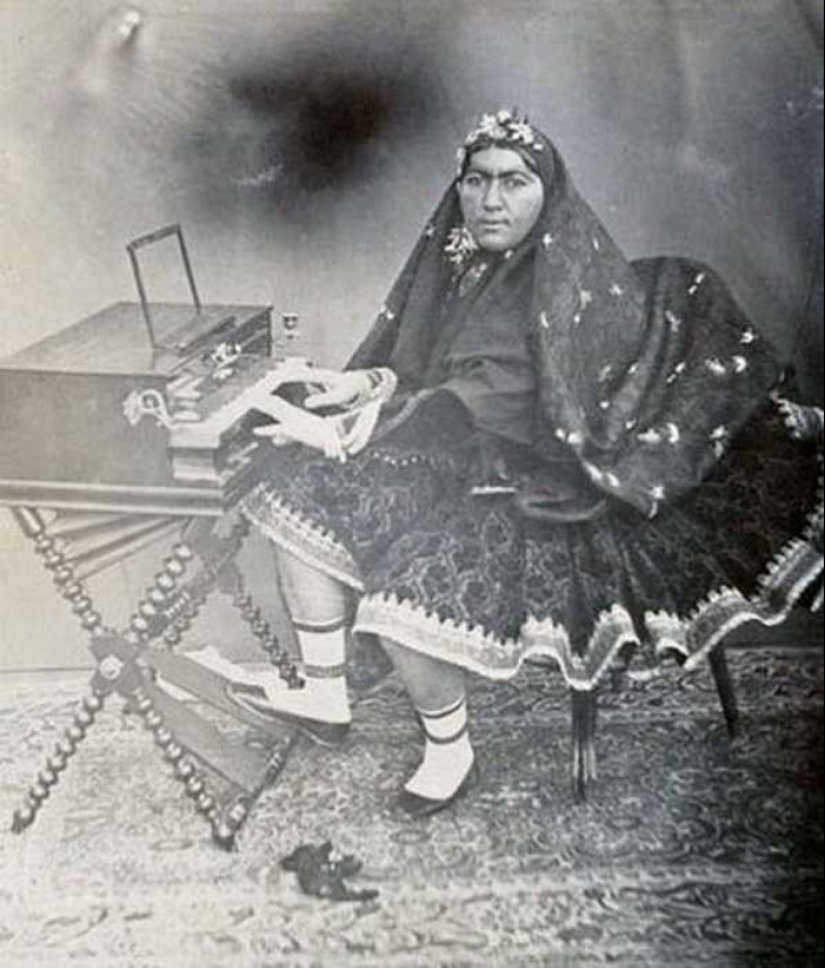 Anis al-Doleh, or the Heartfelt Friend of the Power.
Anis al-Doleh, or the Heartfelt Friend of the Power.
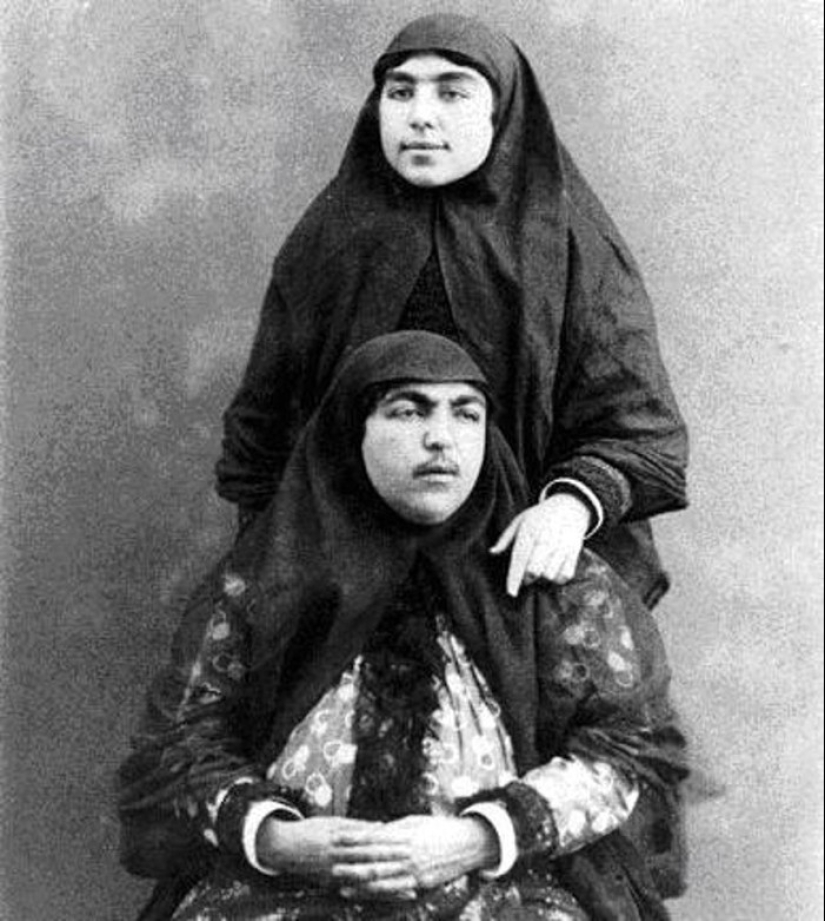 The incomparable Anis al-Doleh (sitting).
The incomparable Anis al-Doleh (sitting).
Photographs of women challenge the generally accepted idea of life in a harem - the Shah's wives look quite modern for that time and self-confident, they calmly look into the camera lens, without flirting or shyness.
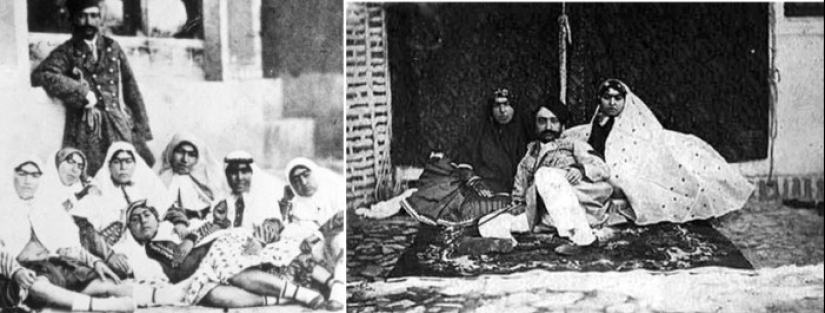 Nasser ad-Din Shah Qajar with some women from the harem.
Nasser ad-Din Shah Qajar with some women from the harem.
One can even assume that the wives in the harem had friendly relations - some photographs show groups on a picnic.
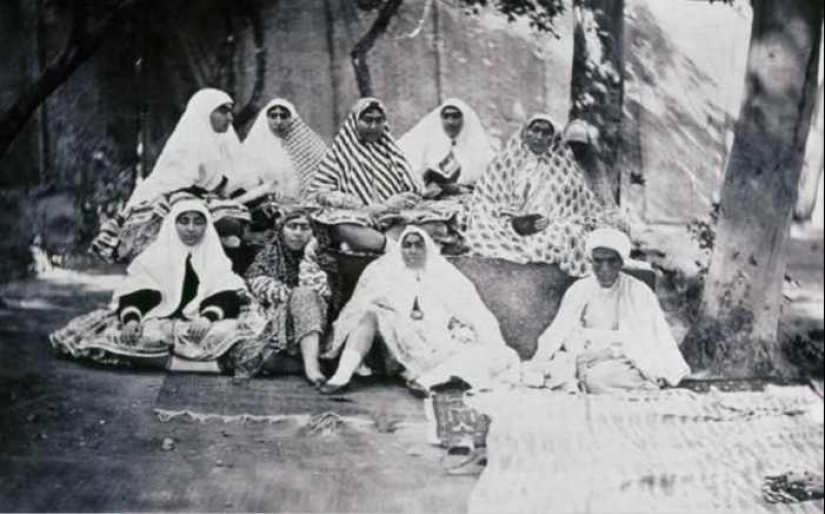 Harem on a picnic.
Harem on a picnic.
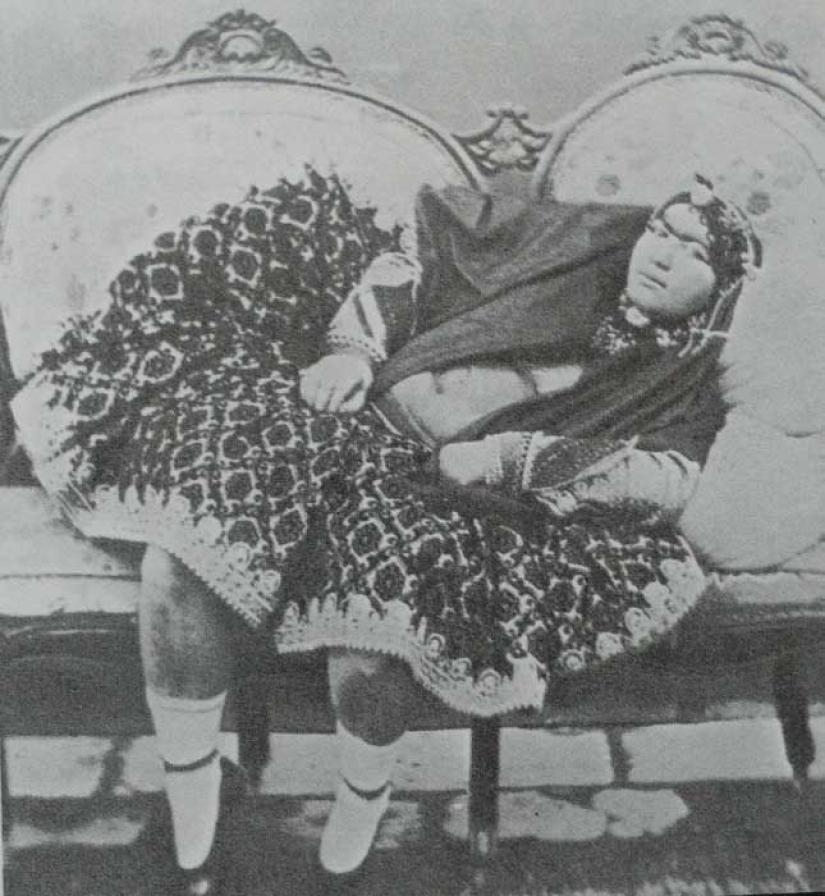 The thin inhabitants of the harem did not suffer.
The thin inhabitants of the harem did not suffer.
From the photographs one can judge the tastes of the Iranian monarch - all women are in the body, with fused thick eyebrows and a clearly visible mustache. It is clearly seen that the women did not suffer from hunger and were not burdened with physical work. Experts say that Golestan’s collection even contains nude photos, but they are safely hidden.
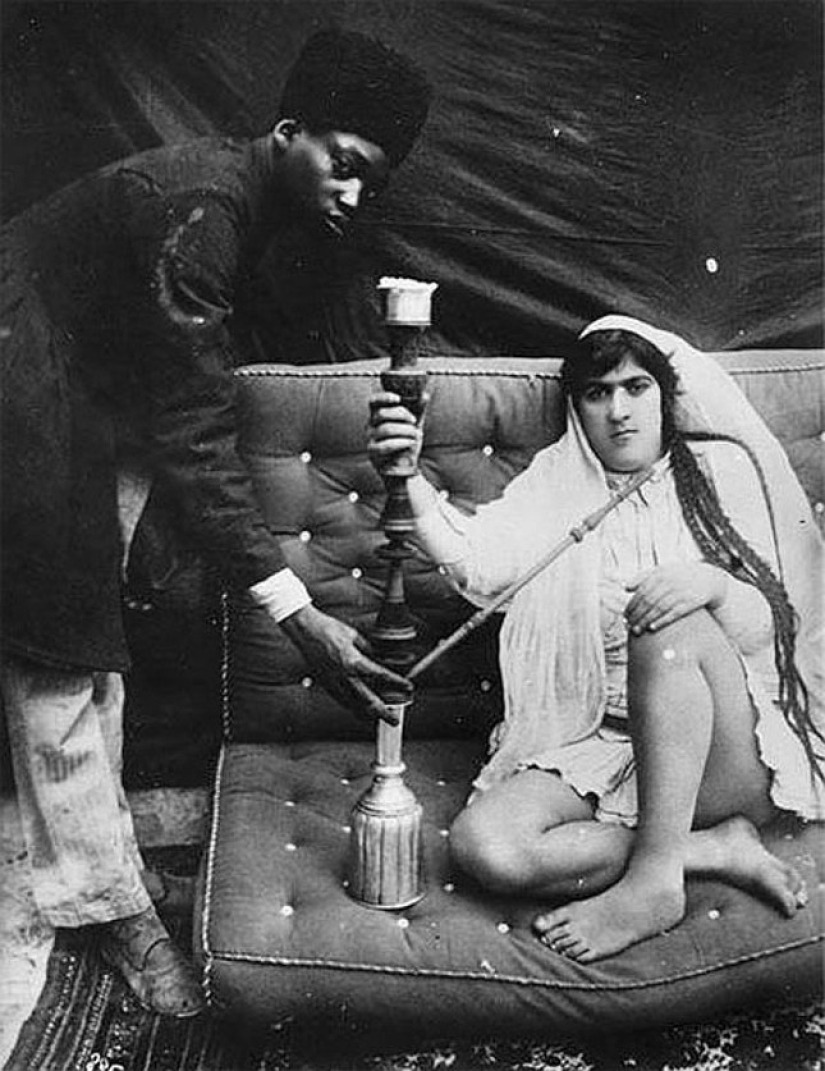 Young concubine with a hookah.
Young concubine with a hookah.
 In many photographs, the concubines of the harem are depicted in short fluffy skirts like tutus (shaliteh). And this is no coincidence.
In many photographs, the concubines of the harem are depicted in short fluffy skirts like tutus (shaliteh). And this is no coincidence.
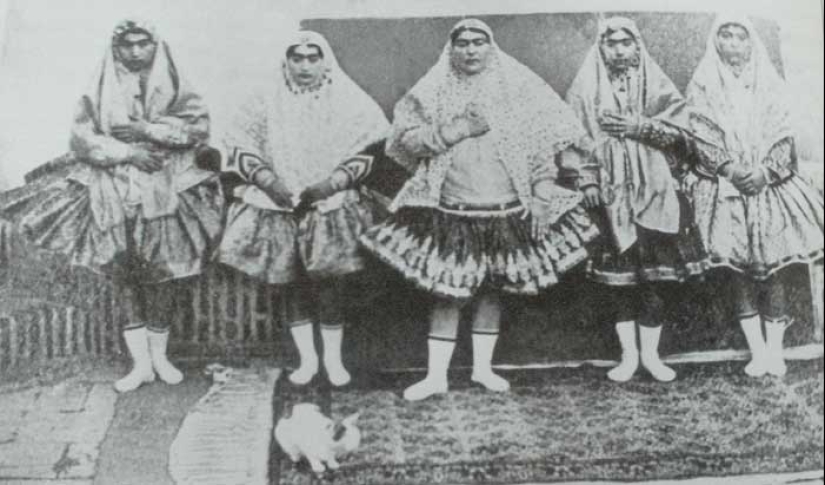 It is known that in 1873 Nasser ed-Din Shah, at the invitation of Alexander II, visited St. Petersburg and attended the ballet. According to legend, he was so fascinated by Russian dancers that he introduced shalitekh for his women. True, concubines could refuse Muslim headscarves only in front of the camera. However, it is possible that this is just a legend.
It is known that in 1873 Nasser ed-Din Shah, at the invitation of Alexander II, visited St. Petersburg and attended the ballet. According to legend, he was so fascinated by Russian dancers that he introduced shalitekh for his women. True, concubines could refuse Muslim headscarves only in front of the camera. However, it is possible that this is just a legend.
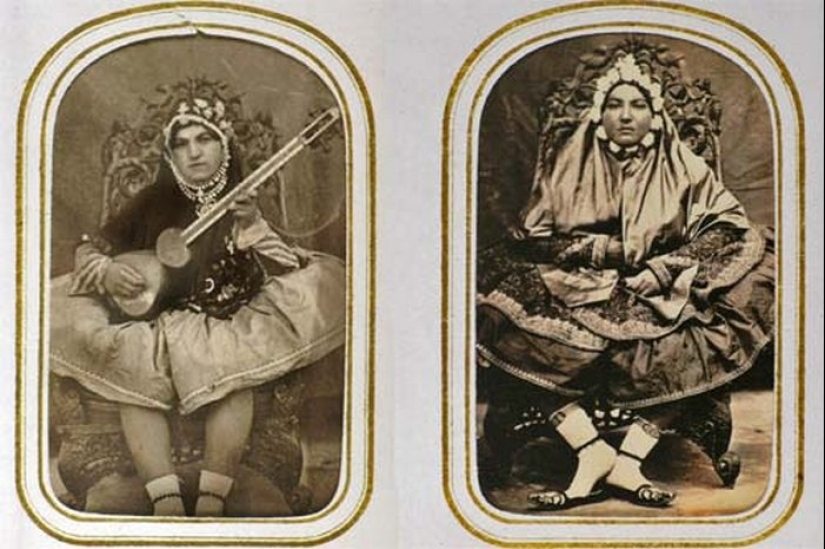 Harem ladies in tutus.
Harem ladies in tutus.
The selection of photos was commented on by Boris Vasilievich Dolgov, senior researcher at the Center for Arab and Islamic Studies at the Institute of Oriental Studies of the Russian Academy of Sciences, Candidate of Historical Sciences:
“The photos are really women. These are not hermaphrodites and not men, as many today might think. Of course, there were also such inhabitants in harems, but they were kept secret, since the Koran did not welcome these things. And as for beauty... As you know, there are no comrades according to taste and color. Regarding vegetation, this is typical for Eastern women. However, it cannot be ruled out that the owner of the harem simply liked “mustachioed” ladies. Fused eyebrows were fashionable at the time, and fullness was synonymous with beauty. The women in the harem were specially fed very tightly and were not allowed to actively move.”
There is another version of who is captured in the photographs - male actors of the first state theater, created by order of Shah Nasereddin (a great lover of European culture) at the Dar el-Funun Polytechnic School in 1890, who performed satirical plays only for the palace nobility. The organizer of this theater was Mirza Ali Akbar Khan Naggashbashi, who is considered one of the founders of modern Iranian theater. Since women were prohibited from performing on stage, these roles were performed by men. The first women appeared on stage in Iran in 1917.
In 1861, Mirza Malkom Khan published three satirical plays in Istanbul: “The Adventure of Ashraf Khan, Governor of Arabistan,” “Methods of Governance of Zaman Khan of Borujerd,” and “Shahkulimirza Goes on a Pilgrimage to Karbala.” Mirza Malkom Khan became the founder of Iranian drama, although his plays were intended more for reading (they were never staged in the credits). In the second half of the 19th century, a play on a local theme by an unknown author, “A Scandal in the Presence of His Majesty,” appeared, close to the satirical plays of Mirza Malkom Khan.
Recent articles

It's high time to admit that this whole hipster idea has gone too far. The concept has become so popular that even restaurants have ...

There is a perception that people only use 10% of their brain potential. But the heroes of our review, apparently, found a way to ...

New Year's is a time to surprise and delight loved ones not only with gifts but also with a unique presentation of the holiday ...